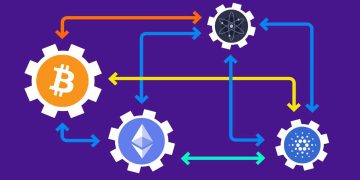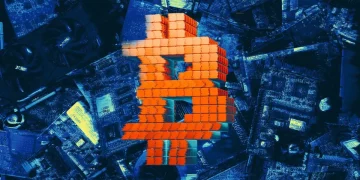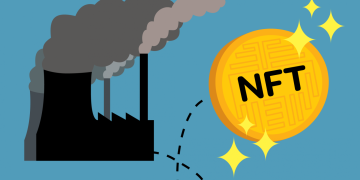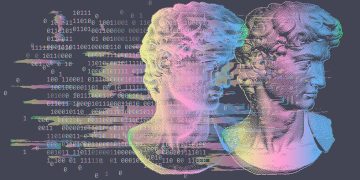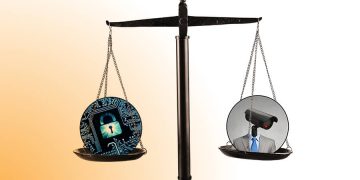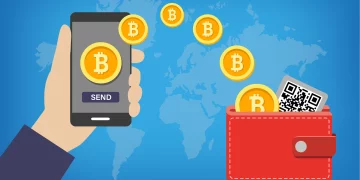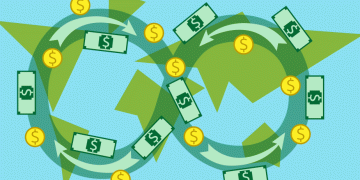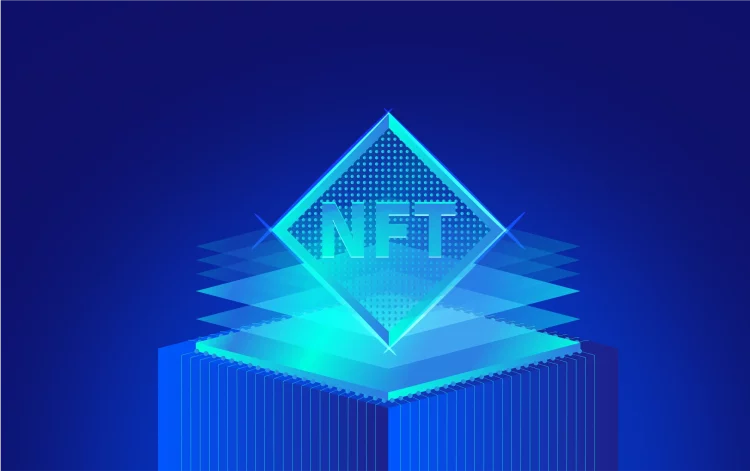Introduction
Non-fungible tokens (NFTs) have emerged as one of the most significant innovations in the world of digital assets. These unique tokens, representing ownership of digital or physical items, have sparked a revolution across industries such as art, gaming, entertainment, and real estate. However, despite their popularity and rapid growth, the lack of clear regulatory guidelines has posed significant risks for both creators and consumers in the NFT space. As the market continues to mature, the need for comprehensive legal frameworks to address these challenges becomes increasingly apparent.
Some countries have already recognized the importance of establishing legal structures to govern the growing NFT market. These frameworks aim to regulate various aspects of the industry, including intellectual property rights, taxation, fraud prevention, and consumer protection. This article explores the importance of NFT regulation, examines the legal initiatives underway in different countries, and discusses the potential benefits and challenges of such frameworks.
1. What Are NFTs?
Non-fungible tokens (NFTs) are unique digital assets that are stored on a blockchain, typically the Ethereum blockchain, although other blockchains such as Binance Smart Chain and Solana are also gaining traction. Unlike cryptocurrencies like Bitcoin or Ethereum, which are fungible (each unit is the same as any other), NFTs are one-of-a-kind, meaning each token has a unique value based on the asset it represents. This could be a piece of digital art, a collectible, in-game item, or even real estate.
NFTs allow creators to sell their digital works directly to buyers without relying on intermediaries like galleries or auction houses. This decentralization has given rise to new opportunities for artists, musicians, and content creators, allowing them to monetize their work in ways that were previously impossible. However, this decentralization also opens the door to various regulatory concerns, as the NFT space is still relatively young and unregulated.
2. The Need for NFT Regulation
a. Intellectual Property Protection
NFTs are often tied to digital art or intellectual property (IP), and ensuring proper IP protection is a major concern. Without clear regulations, creators risk their works being tokenized and sold without their permission, leading to potential copyright infringement and piracy. Buyers, on the other hand, may unknowingly purchase an NFT that does not grant the rights they assume it does. For example, purchasing an NFT representing a digital painting may not automatically confer the buyer with the right to display or reproduce the artwork commercially.
Legal frameworks are needed to define what rights are associated with NFTs and to establish processes for resolving disputes over intellectual property ownership. This could involve the introduction of standardized licensing agreements that specify the rights transferred with the purchase of an NFT.
b. Consumer Protection
As the NFT market is still relatively new, buyers are at risk of encountering fraud, misrepresentation, and scams. Fraudulent actors may mint NFTs that falsely claim ownership of certain digital works or manipulate market prices through artificial scarcity. Furthermore, since NFTs are often traded on decentralized marketplaces, enforcement of consumer protection laws becomes a complex issue.
Regulatory oversight can help ensure that NFT platforms provide clear information about the assets being sold and protect buyers from misrepresentations. This could involve requiring marketplaces to verify the authenticity of the assets before listing them for sale and implementing mechanisms for buyers to report fraudulent or misleading transactions.
c. Taxation and Financial Regulation
NFTs can have significant financial value, and the buying and selling of NFTs often result in taxable events. However, the tax treatment of NFTs is still unclear in many jurisdictions. For instance, should NFTs be taxed as digital assets or as tangible property? How should creators and buyers report NFT transactions for tax purposes? How should royalties be structured for secondary market sales?
A clear legal framework can provide guidance on how to classify NFTs for tax purposes, ensuring that creators, buyers, and platforms comply with national and international tax regulations.
3. Legal Frameworks in Different Countries
As the NFT market continues to expand, several countries have begun taking steps to regulate this space. Below are some notable examples of how different nations are addressing the challenges associated with NFTs.
a. United States
In the United States, the legal status of NFTs remains unclear, with most regulations surrounding digital assets focusing on cryptocurrencies. However, some states and regulatory bodies have started to explore how NFTs should be treated legally.
- Securities and Exchange Commission (SEC): The SEC has indicated that NFTs may be subject to securities regulations if they meet certain criteria. For example, if an NFT is tied to an investment contract or provides the holder with rights to profits from the underlying asset, it could be classified as a security.
- Taxation: The IRS treats NFTs as property, meaning that they are subject to capital gains tax when sold for a profit. This has led to debates about how to classify the sale of NFTs, as well as how to account for royalties on secondary sales.
- State-Level Legislation: Some U.S. states, such as Wyoming, have introduced blockchain-friendly regulations that could help establish clearer guidelines for NFT transactions. Wyoming, for example, has passed laws allowing digital assets to be treated as property for tax purposes and provides a legal framework for blockchain-based business operations.
b. European Union
The European Union (EU) has been proactive in its approach to digital assets, including NFTs. The EU’s proposed Markets in Crypto-Assets Regulation (MiCA), which is expected to come into force in 2024, will provide a regulatory framework for various types of crypto assets, including NFTs.
- Consumer Protection: MiCA aims to enhance consumer protection by requiring greater transparency from platforms that issue, buy, or sell NFTs. This includes requirements for clear and accurate disclosures, as well as obligations for platforms to establish consumer redress mechanisms.
- Taxation: In terms of taxation, the EU has called for greater cooperation between member states to standardize the tax treatment of digital assets, including NFTs. This may include VAT (Value Added Tax) exemptions for the sale of NFTs, similar to the treatment of cryptocurrencies in certain jurisdictions.

c. United Kingdom
In the UK, NFTs are treated as digital assets, and there are ongoing efforts to clarify their treatment in terms of regulation, taxation, and consumer protection.
- FCA Guidelines: The Financial Conduct Authority (FCA) has issued guidelines stating that NFTs, when associated with financial rights or investments, may fall under the regulatory framework for securities. This means that platforms facilitating NFT transactions may need to be licensed by the FCA.
- Taxation: Similar to the United States, the UK treats NFTs as assets for tax purposes. Sellers must report the sale of NFTs as part of their capital gains, and royalties from secondary sales are also taxable.
d. Asia (Japan and South Korea)
Asia has seen a surge in NFT activity, especially in countries like Japan and South Korea, both of which have adopted proactive regulatory approaches to digital assets.
- Japan: Japan has taken a relatively conservative approach to NFTs, focusing on consumer protection and preventing illegal activities such as money laundering. Japan’s Financial Services Agency (FSA) is working to integrate NFTs into its existing regulatory framework for crypto assets. This includes ensuring that NFT platforms comply with anti-money laundering (AML) regulations.
- South Korea: South Korea has introduced specific regulations for NFTs, especially in relation to the gaming industry, where NFTs are increasingly being used for in-game assets. The government has also expressed interest in taxing NFT sales, particularly secondary sales of NFTs, to capture the growing value in the market.
4. Benefits of NFT Regulation
a. Increased Market Confidence
Clear legal frameworks provide buyers and sellers with confidence that their transactions are protected. As the NFT market matures, consumers will be more willing to engage in the space if they know that their rights are safeguarded and that the assets they purchase are legitimate.
b. Fraud Prevention and Risk Mitigation
Regulatory oversight will help prevent fraudulent activities, such as the sale of counterfeit NFTs or the misrepresentation of digital assets. By ensuring that platforms verify the authenticity of NFTs, regulators can reduce the risks of scams and increase trust in the market.
c. Encouraging Innovation and Growth
A clear regulatory environment can foster innovation by creating certainty around how NFTs should be treated. This will allow creators, developers, and businesses to invest in the NFT space with confidence, knowing that they have legal protections and a defined market structure.
5. Challenges of NFT Regulation
While the benefits of NFT regulation are clear, there are also significant challenges that governments and regulatory bodies must address.
a. Global Coordination
NFTs are inherently global in nature, and their decentralized structure makes it difficult for any one country to regulate them effectively. Coordinating regulations at the international level will be crucial to prevent regulatory arbitrage and ensure that NFT transactions are subject to consistent standards.
b. Balancing Innovation and Regulation
Governments must strike a delicate balance between fostering innovation and implementing regulatory controls. Over-regulation could stifle creativity and hinder the growth of the NFT market, while under-regulation could expose consumers to risks and fraud.
c. Technological Complexity
NFTs operate on blockchain technology, which is still evolving. Regulatory bodies must stay informed about technological developments to ensure that their regulations remain relevant and effective in addressing the complexities of NFTs.
Conclusion
As the NFT market continues to grow, it is crucial that countries establish legal frameworks to regulate the space and protect both consumers and creators. By addressing issues such as intellectual property, consumer protection, taxation, and fraud prevention, legal frameworks can ensure that the NFT market thrives in a secure and transparent manner.
Countries such as the United States, the European Union, the United Kingdom, and Japan are already taking steps to introduce NFT-specific regulations, setting a global precedent for how governments can approach this rapidly evolving market. However, much work remains to be done to create a unified international approach to NFT regulation.
With the right legal frameworks in place, NFTs have the potential to revolutionize the way we create, trade, and consume digital assets—ushering in a new era of innovation, creativity, and financial opportunity.

